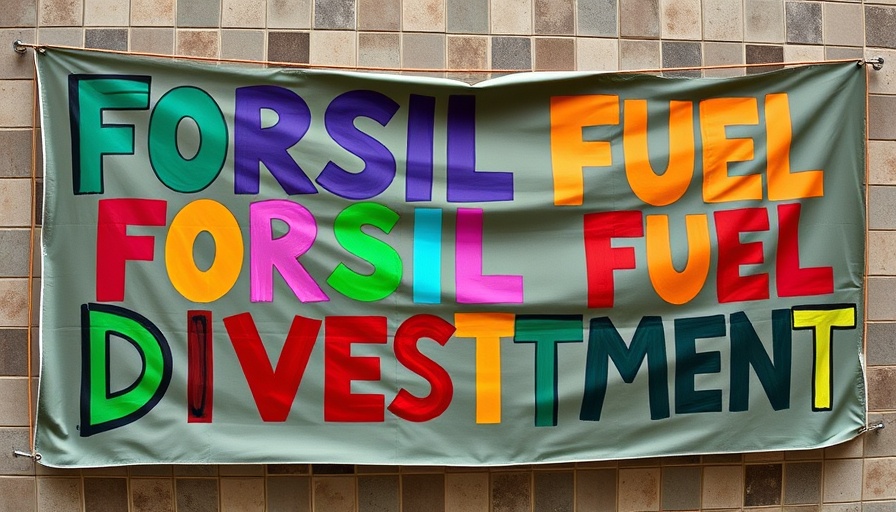
Fossil Fuel Divestment: A Slower Path to Victory
The student-led group, Students for a Fossil Free Future (S4F), is currently facing significant challenges, leading to a slowdown in their fossil fuel divestment campaign in Singapore. Founded by students from Yale-NUS College, the organization has been advocating for the removal of fossil fuel industry investments from Singapore's educational institutions since 2017. Despite being formed during a heightened period of environmental awareness, S4F has struggled to maintain momentum as student interest appears to dwindle.
Understanding the Decline in Climate Activism
As reported, S4F has encountered difficulty recruiting new members, prompting a reevaluation of their strategies and operations. Co-founder Rachel Tey expressed that the ongoing challenge of sustaining student interest, particularly in a campaign that critically examines the ties between education and the fossil fuel industry, has necessitated a shift in their operational model. This situation is reflective of a broader trend where environmental groups across the city-state are witnessing waning interest in climate advocacy, raising questions about the future of sustainable initiatives among youth.
Historical Context: The Rise and Fall of Climate Activism
This is not an isolated phenomenon; historical insights reveal that fossil fuel divestment movements have gained traction in various regions, particularly in the U.S., where significant victories have been recorded. Universities such as Harvard and Stanford have committed to divesting from fossil fuels. In contrast, Singapore’s educational institutions have yet to take similar steps publicly, indicating a stark difference in engagement and commitment to climate action.
Social Implications: Why This Matters
The implications of S4F's slowdown extend beyond just the students involved. As oil and gas companies continue to exert influence over educational institutions, the potential consequences for academic integrity and environmental discourse grow. Educational environments should encourage critical dialogues about sustainability, especially as climate change poses an existential threat. The hesitation to challenge established partnerships with fossil fuel interests may hinder progress towards a more sustainable future.
Lessons from Global Movements: Will Things Change?
Looking at S4F’s scorecard launched in 2023, findings revealed little to no progress made by targeted universities in phasing out fossil fuel influence. This stagnation might be indicative of broader trends in climate activism globally, where initial momentum does not always translate into sustained action. While divestment movements have sparked significant conversations, the tangible impacts often take time, which may discourage participants who seek immediate results.
The Future of Fossil Fuel Divestment in Singapore
As S4F plans to operate on a more minimal structure, featuring project-based initiatives, the future remains uncertain. Their commitment to collaborating with other civic organizations suggests that while the organization may be refocused, the fight for climate justice continues. This pivot to a resource hub for students interested in initiating their campaigns reflects a broader shift towards community-based approaches, emphasizing the importance of grassroots engagement in the fight against climate change.
Call to Action: Join the Movement for Sustainable Change!
For readers inspired by S4F’s commitment to environmental advocacy, there are numerous ways to get involved. Whether it's participating in local campaigns, adopting a zero-waste lifestyle, or educating peers about sustainable practices, every effort counts. Individuals have the power to significantly reduce their carbon footprint and influence their communities towards conscious living. Together, let's advocate for a future where sustainability is prioritized in every facet of society.
 Add Row
Add Row  Add
Add 



Write A Comment